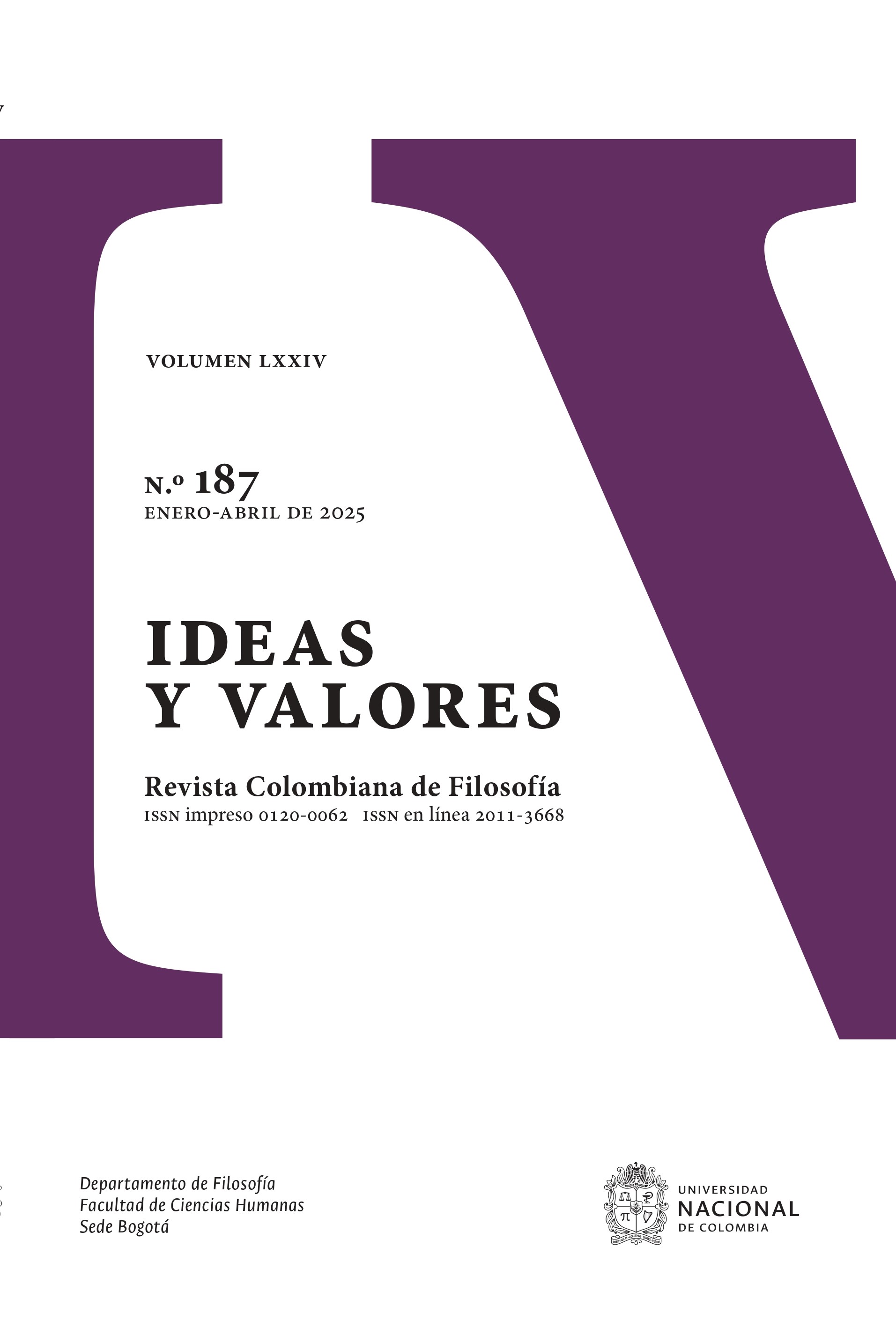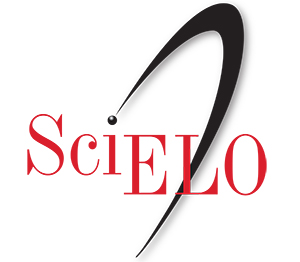Las formas de poder como actos de habla
Forms of power as speech acts
DOI:
https://doi.org/10.15446/ideasyvalores.v74n187.116885Keywords:
poder, ontología social, teoría de los actos de habla, condiciones de satisfacción, Deleuze (es)power, social ontology, speech acts theory, felicity conditions, Deleuze (en)
Downloads
El objetivo de este artículo consiste en proponer el proyecto de un análisis del poder, a nivel de ontología social, desde la teoría de los actos de habla. Ello permite una descomposición de los factores que determinan la aceptación de una pretensión de ejercicio de poder, diferenciando para ello cada una de las condiciones de satisfacción del acto de habla mediante el cual se concreta el ejercicio de poder. La aproximación propuesta requiere, además, de la formulación de una crítica a los enfoques conflictuales sobre el poder, en los que se presupone una oposición de intereses entre agente y sujeto en una relación de poder. Finalmente, la aproximación propuesta nos permite un análisis renovado sobre la función del poder de fondo social, entendido como un recurso que los agentes pueden utilizar a su favor.
The objective of this article is to propose the project of an analysis of power, at the level of social ontology, departing from the theory of speech acts. This allows a decomposition of the factors that determine the acceptance of a claim to exercise power, differentiating each of the felicity conditions of the speech act through which the exercise of power is specified. The proposed approach also requires the formulation of a critique of conflictual approaches to power, which presupposes an opposition of interests between agent and subject in a power relationship. Finally, the proposed approach allows us a renewed analysis of the function of background power, understood as a resource that agents can use in their favor.
References
Arendt, Hannah. Sobre la violencia. Madrid: Alianza, 2018.
Austin, John Langshaw. How yo do things with words. Nueva York: Oxford University Press, 1965.
Deleuze, Gilles y Guattari, Félix. Mil mesetas. Capitalismo y esquizofrenia. Valencia: Pre-Textos, [1980]2020.
Deleuze, Gilles. El poder. Curso sobre Foucault. Buenos Aires: Cáctus, [1986] 2014.
Deleuze, Gilles. Derrames entre el capitalismo y la esquizofrenia. Buenos Aires: Cáctus, 2005.
deVries, Willem. “Wilfrid Sellars.” The Stanford Encyclopedia of Philosophy, Edward N. Zalta (ed.), 2021. https://plato.stanford.edu/archives/fall2021/entries/sellars/.
Elster, Jon. Reason and rationality. Princeton, NJ: Princeton University Press, 2009.
Elster, Jon. Ulises desatado. Estudios sobre racionalidad, precompromiso y restricciones. Barcelona: Gedisa, 2002.
Forst, Rainer. “Noumenal Power.” Journal of Political Philosophy 23 (2015): 111-127. doi: https://doi.org/10.1111/jopp.12046
Green, Mitchell. “Speech Acts.” The Stanford Encyclopedia of Philosophy, Edward N. Zalta (ed.), 2021. http://plato.stanford.edu/entries/speech-acts/
Grice, Herbert Paul. “Utterer´s meaning, sentence-meaning and word-meaning.” The Philosophy of Language. Ed. John Searle. Londres: Oxford University Press, 1971. 54-70.
Khader, Serene. Adaptive preferences and women´s empowerment. Oxford: Oxford University Press, 2011.
Levin, Abigail. The cost of free speech. Pornography, hate speech, and their challenge to liberalism. Nueva York: Palgrave Macmillan, 2010.
Medina, José. The epistemology of resistance. Gender and racial oppression, epistemic injustice, and resistant imaginations. Oxford: Oxford University Press, 2013.
Searle, John. Making the social world. Nueva York: Oxford University Press, 2010.
Searle, John. Actos de habla. Madrid: Cátedra, 1980.
Searle, John. “What is a speech act?” The Philosophy of language. Ed. John Searle. Londres: Oxford University Press, 1971. 39-53.
Wartenberg, Thomas. The forms of Power: From Domination to Transformation. Philadelphia: Temple University Press, 1990.
How to Cite
MODERN-LANGUAGE-ASSOCIATION
ACM
ACS
APA
ABNT
Chicago
Harvard
IEEE
Turabian
Vancouver
Download Citation
License
Copyright (c) 2024 Los derechos son del autor(es), quien(es) puede re-publicar en parte o en su totalidad el documento ya publicado en la revista siempre y cuando se dé el debido reconocimiento a Ideas y Valores

This work is licensed under a Creative Commons Attribution-NonCommercial-NoDerivatives 4.0 International License.
The Creative Commons Attribution-NonComnercial-No Derivatives 4.0 Internacional License authorizes copying and redistributing the material in any means or format, provided that credit is granted to the authors and to Ideas y Valores as the source of the original publication. Copying or distributing the contents of the journal for commercial purposes is not allowed; neither is the adaptation, derivation, or transformation of the contents, without previous authorization by the authors and the editors of Ideas y Valores. For further information regarding the terms of this license, please consult http://creativecommons.org/licenses/by-nc-nd/4.0/legalcode.







1.jpg)
.png)


1.png)
.png)
.png)
.jpg)

.png)









